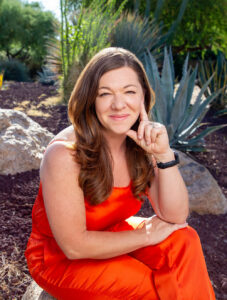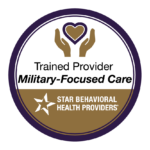Burnout is a term that we’re all becoming more and more familiar with the deeper we get into the roaring 2020s. It’s more than just feeling tired after a long day; it’s a state of chronic physical, emotional, and mental exhaustion. It’s feeling like you’re constantly at your wits’ end and the next thing that goes even slightly wrong might just push you over the edge. Burnout is real and can lead to severe consequences if not addressed. Read on to learn more about burnout and six strategies for better coping with burnout, each illustrated with stories to bring these concepts to life.
The Science of How Burnout Affects Our Minds and Bodies
By now, we all have an idea of how burnout feels – in a nutshell, bad. It affects every part of our being, and we often don’t understand what’s happening in the moment because, well we’re suffering from burnout, which affects our cognitive processing. Burnout and sleep impairment usually go together. When we’re not able to get the rest we need to recharge, our energy resources are depleted causing dysregulation of both the hypothalamus–pituitary–adrenal (HPA) axis and sympathetic nervous systems. These systems, along with those found in the prefrontal cortex, are critical in regulating things like physical and mental acuity, motivation, enthusiasm, cognitive resilience, our ability to cope with stress, and our willpower. Without a properly functioning system, our responses to what might be normal stressors become dysregulated, which is why you might yell at your kids for the little stuff, or cry because you spilled your coffee. Let’s get into some more examples and ways to cope better with burnout.
Recognize the Signs of Burnout
Burnout can be sneaky. It can creep up slowly, making it difficult to pinpoint exactly when it started. For Sarah, a high-performing marketing executive, the signs were subtle at first. She slept fine but was still tired all day. She kept hitting snooze and was getting up less and less to hit the gym. Simple tasks that she once completed effortlessly started feeling overwhelming. Sarah brushed it off as just being “busy,” but soon she found herself snapping at her colleagues and dreading going to work. It wasn’t until her doctor diagnosed her with stress-related high blood pressure that she realized she was experiencing burnout.
Recognizing the signs early, like Sarah eventually did, is so important. Chronic fatigue, emotional exhaustion, decreased performance, and physical symptoms such as headaches or insomnia are all red flags. Acknowledging these symptoms is the first step toward recovery. Once you’ve recognized the signs of burnout you can take action. Slowing down may realistically not be an option but knowing what’s happening and why you’re feeling the things you’re feeling, and especially that you’re not alone, goes a long way in allowing yourself the grace and compassion that you deserve to keep going.
Set Healthy Boundaries
John, a freelance software developer, was known for his willingness to take on extra projects. More projects meant more money and his growing family could sure use that! His work ethic was admirable, but it came at a cost. John found himself working late nights and weekends, constantly checking emails even during family dinners. The line between work and personal life became blurred, leading to strained relationships and increased stress. His breaking point came when he missed his daughter’s school play because he was caught up in a last-minute project for a big client.
Setting boundaries became John’s saving grace. It wasn’t easy at first, but he learned to say “no” to extra work and began setting clear limits on his availability. The more he practiced setting boundaries, the easier it became. By establishing those firm boundaries between work and personal life, John was able to reclaim his time and prioritize his well-being, ultimately preventing further burnout. His clients quickly grew to respect his boundaries and were happy to work around them, mostly because they were all experiencing burnout, too. Once John realized he wasn’t alone, a huge weight was lifted.
Practice Self-Care

For Lisa, a nurse working in a busy hospital, self-care was something she often preached to her patients but rarely practiced herself. Saying is so much easier than doing, right? The long hours and emotional demands of her job left little room for personal time. She started to feel drained and disconnected, both physically and mentally. A turning point came when a close friend insisted she take a weekend off to rest. Lisa reluctantly agreed, and that weekend, she focused on nothing but herself—sleeping in, eating healthy meals, and practicing yoga.
That break reminded Lisa of the importance of self-care. She started incorporating small, daily rituals into her routine – taking a 10-minute meditation break, going for a walk after her shift, and reading fiction books for fun on her work breaks instead of scrolling social media. These small acts of self-care helped Lisa restore her energy and prevented her from falling deeper into burnout.
Take Regular Breaks
Michael, a freelance writer, was in the habit of working for hours without breaks. The pressure to meet deadlines often kept him glued to his desk, and he prided himself on his ability to push through fatigue. This intense work schedule eventually took its toll. He started getting headaches and having trouble sleeping. He realized he needed to do something different when the quality of his work started to decline. His creativity was just gone. He would sit and stare at a blank screen but not know what to write. What once came so naturally to him was now a struggle and a stress.
Michael started incorporating regular breaks into his day. Every hour, he would step away from his computer for a short walk, some stretching, or even just to stare out the window for a few minutes. These small breaks helped him clear his mind, reset, and return to his work feeling refreshed. This took the pressure off from having to produce and create just because he was sitting in front of his computer. He didn’t force it. Over time, this practice not only improved his productivity but also reduced his stress levels and prevented burnout.
Seek Support

Emma, a young teacher, loved her job but found herself increasingly overwhelmed by the demands of her students, parents, and administration. She started to feel isolated, believing she was the only one struggling to keep up. She always wanted to be a teacher, but not like this. Her stress grew to the point where she considered quitting her job altogether. A teacher who’d been around a few years longer than her noticed Emma was struggling and suggested she talk to a counselor. This teacher said that she’d felt the same things when she first began teaching and wished she’d have talked to someone. Emma was hesitant at first, but grateful that she wasn’t alone. She took her friend’s advice and scheduled an appointment with a local therapist.
In therapy, Emma found a safe space to express her frustrations and anxieties. Her therapist helped her develop coping strategies and provided a new perspective on her challenges. Emma also started confiding in her close friends and a few fellow teachers, who offered support and encouragement. Seeking support helped Emma realize she wasn’t alone, and it gave her the strength to continue teaching with renewed energy.
Reevaluate Priorities
Tom, a successful small business owner, seemed to have it all—a thriving business, a beautiful home, and a loving family. But underneath the surface, he was struggling more than anyone realized. The constant pressure to grow his business, keep his employees and clients happy, and wear all the hats of a business owner, led Tom to work long hours, leaving little time for his family or hobbies. He loved his job, but lately, he felt trapped in a cycle of work that no longer brought him joy. After a particularly grueling week where everything that could go wrong did go wrong – an employee quit, a client wrote a bad review, and his shop had a flood, Tom was forced to take a step back and reevaluate his life.
Tom realized that while his business was important, it wasn’t worth sacrificing his happiness and health. He decided to scale back his work commitments and delegate more responsibilities to his team. His wife reminded him that he hired them for a reason and that he could rely on them to lighten his load. Tom also started making time for activities he loved, like camping and spending weekends with his family. By realigning his priorities, Tom found a healthier balance and rediscovered his passion for life.
Burnout is Real
Burnout is a serious issue that can affect anyone, regardless of their profession or personal circumstances. It can lead to chronic depression, anxiety, and stress. Recognizing the signs, setting boundaries, practicing self-care, taking regular breaks, seeking support, and reevaluating priorities, can make managing and preventing burnout easier. If you’re feeling overwhelmed, remember that you’re not alone, and it’s never too late to take action.
We’re here to help you implement any of these strategies if you’re not sure where to start. Follow us on social for mental health more tips or give us a call to set up an appointment for in-person therapy in Scottsdaleor online teletherapy in Arizona, Oregon, Washington & Tennessee.




